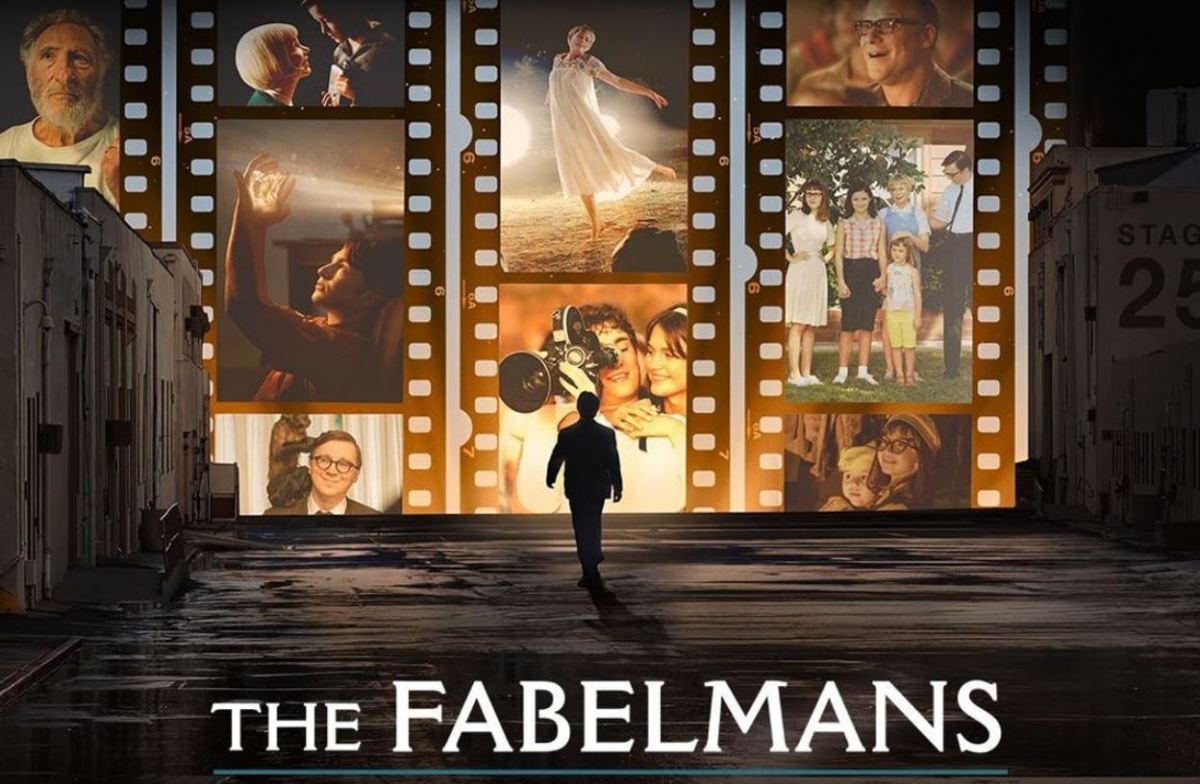
A fine outlook into the Steven Spielberg horizon – Beyond Bollywood
Though not a certified biopic, the semibiographical film draws inspiration from the legendary filmmaker’s personal and professional space.
Rating: 3.5 / 5
By Mayur Lookhar
A young little boy is introduced to his first film. Until then, he had perceived cinema to be having gigantic people. His father corrects him, but the boy still looks nervy. It’s the mother who then calms the boy in saying, “Movies are dreams that you never forget”. The saying holds true but The Greatest Show on Earth [1952] isn’t the ideal introduction to cinema for a young child. A destructive action scene [train-car collision] gives young Samuel aka Sammy Fabelmans [Mateo Zoryan Francis-DeFord] nightmares.
The speeding train, though captivates his imagination. The boy requests for a toy train set as a gift for Hanukkah [Jewish festival]. Soon he tries to recreate the train-car collision, filming it on his father Burt Fabelman’s [Paul Dano] camera, without dad knowing about it. Mitzi [Michelle Williams] believes that this mother-son secret shoot will help the boy overcome his fears. This was a maiden ‘crash’ course in filming for young Sammy. Little did he know then, that the staged collision would serve as a metaphor for the times ahead.
As a child, Sammy roped in his sisters to shoot sibling, family moments. Seeing the kids use all the toilet paper to mimic mummies is hilarious. Then at school, he filmed his fellow boy scouts in his war drama Gunsmog, a precursor to his own Escape to Nowhere [1961].
Years later, the 16-year-old Samuel would get an important life lesson from his crude uncle Boris [Judd Hirsch], “Family, art will tear you apart”. The tension in the family, particularly around his mother hurts Sammy, with the camera serving as his escapism.
Spielberg’s films, characters are often drawn from life experiences. The Fabelmans isn’t described as a biopic, but Sammy’s early films are a slice from Spielberg’s personal and professional space. They are a precursor to Spielberg’s films that would follow in the years to come.
At the heart of this tale though is a family affair, one that the filmmaker has braved to tell. Spielberg hails from a Jewish family who migrated to the United States post World War II His father was a computer engineer who worked in top IT firms. The family first moved to Phoenix, Arizona and later to California, which becomes a source of divide between Spielberg Sr and his wife. Like the Spielbergs, Burt Fabelman and Mitzi drift apart with the latter dearly missing the family good friend Bennie [Seth Rogen].
Sammy spends much of his time at school/college. It isn’t easy though for a Jewish boy to be embraced open heartedly by all. A couple of bullies aren’t afraid to pass anti-Semitic jibe. Sammy retorts in his inimitable style. The feud also enables him to befriend a Christian devout Monica Sherwood [Chloe East]. The teens are unable to control their urge. The girl, though, first gets Sammy to pray to Jesus seeking forgiveness for what they are about to do next. As they drop on the bed, the many Jesus idols stare them. The mission though is aborted as Chloe’s mom calls out her daughter. Soon, Sammy pops the proposal but the girl is rather disappointed by it. That was the end of their little crush.
More than cinematic, The Fabelmans shine for the personal stories. Spielberg’s abled cast go a long way in drawing you to this family. Mateo has the adorable Berdie Borria, Alina Brace for company. The trio then pass the baton to Gabriel LaBelle, Julia Butters, Keelay Karsten. They are later joined by Sophia Kopera, who plays the youngest child in the Fabelman house. The sibling banter throughout the years is a sight to behold.
Much of the screenplay rides on the stellar acts of LaBelle, Michelle Williams, Paul Dano and Seth Rogen – the four principal characters in Spielberg’s film. Williams’ Mitzi is the most sophisticated of these characters. She is a strong mother, a responsible wife, but the second and sudden shift to California makes it difficult for Mitzi. The housewife loves the piano, but even that can’t fill the void that was left behind in the rented house in Phoenix, Arizona. Despite the tension, not once do you feel sick about Mitzi. Spielberg respects the dignity of a Mitzi, Burt and Bennie.
LaBelle effortlessly slips into his character, standing out more for his humility than talent. Sammy is curious from an early age, but there’s no high handedness in his direction. The director’s man management skills come to the fore while filming a war sequence where his star actor is initially devoid of emotion while walking through the pile of bodies. Sammy nicely urges his captain to have a sense of sadness over the carnage. The advice works wonders but the actor continues walking long after the director’s cut. This scene is perhaps a precursor to Saving Private Ryan [1998].
Spielberg doesn’t hide Sammy’s discontentment with his mother. What does one expect from a 16-year-old? The Mitzi-Sammy relationship has its own dynamics that form the core crux of this film. No disengagement but few portions in the latter half don’t quite match the film’s earlier intensity.
The biggest plus of The Fabelmans is the immersive production design, seamless editing that builds consistent engagement even in large scenes. The color, too, matches the flavour of the 50s-60s.
Through his adolescent years, Sammy received three vital advice – one from his mother, then the weird uncle and last from legendary filmmaker John Ford [played by acclaimed filmmaker David Lynch]. In his few minutes with Ford, the haughty filmmaker stresses on the need to get the horizon right [top or bottom] for any frame. Our enlightened man walks through the studio backlot, while Spielberg’s camera goes against the advice and puts the horizon in the center. The Fabelmans simply captures the horizon that encompasses all that is Spielberg.
Co-produced by Reliance Entertainment, The Fabelmans [2022] is set to be released in India on 10 February, 2023
Publisher: Source link
